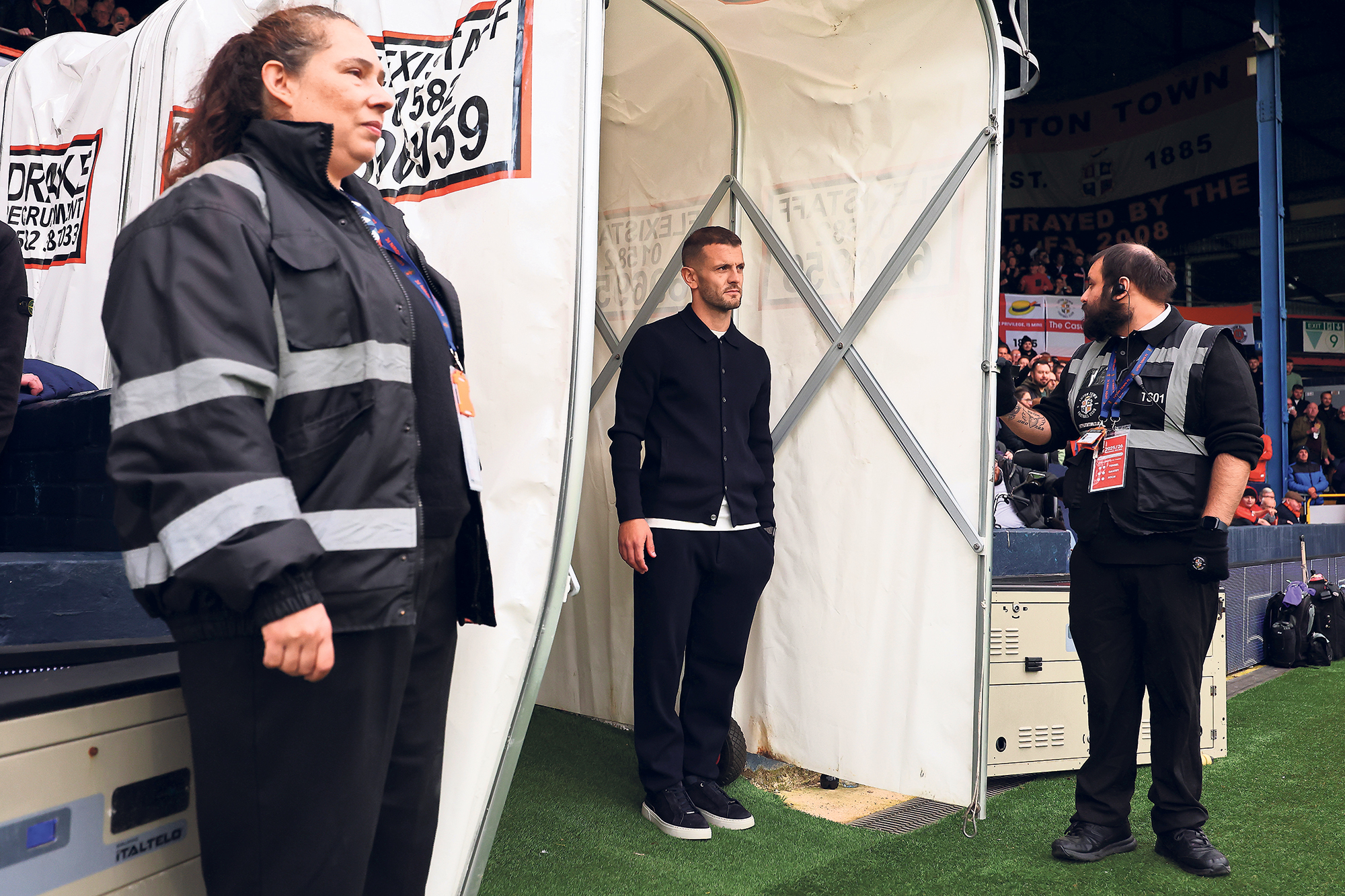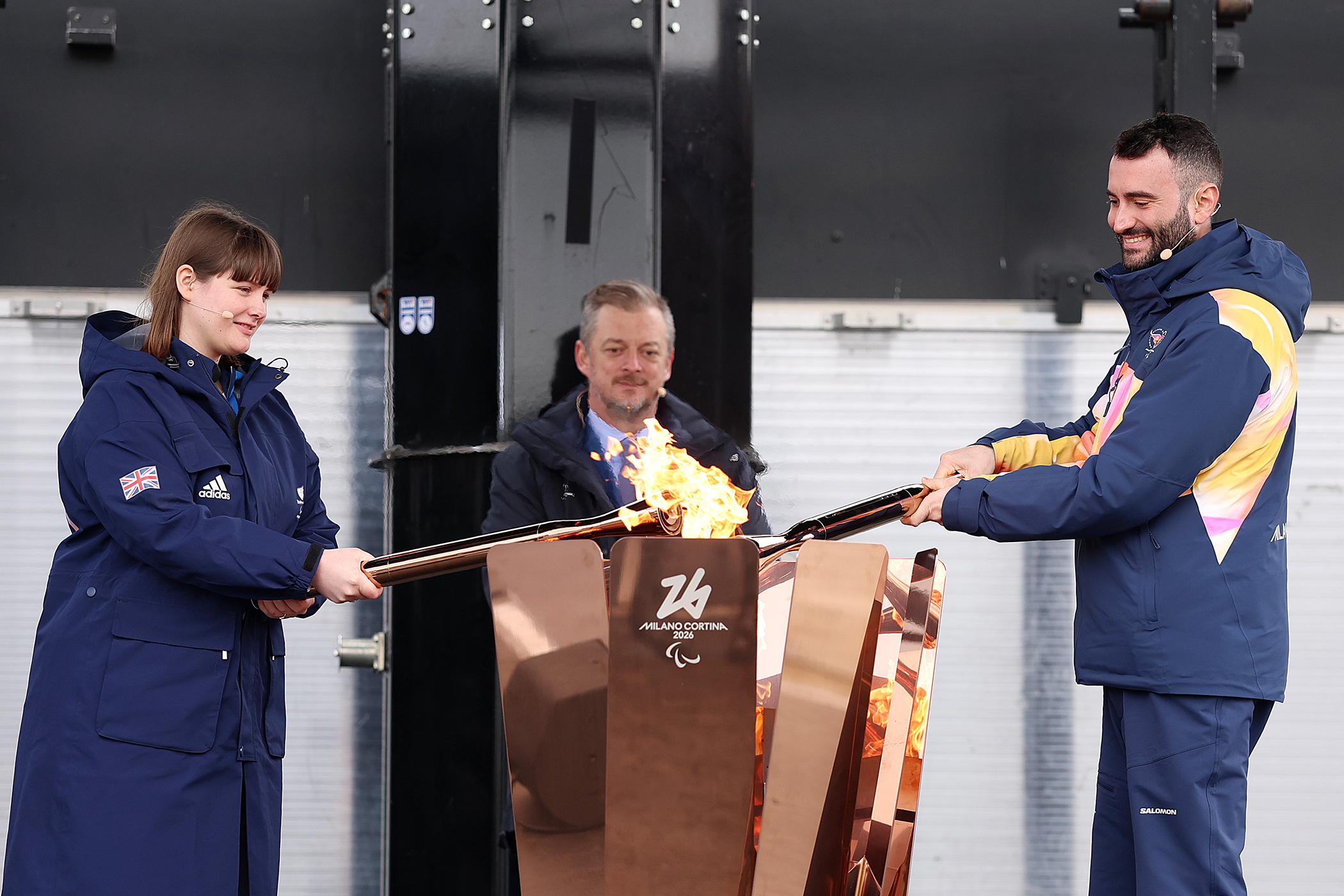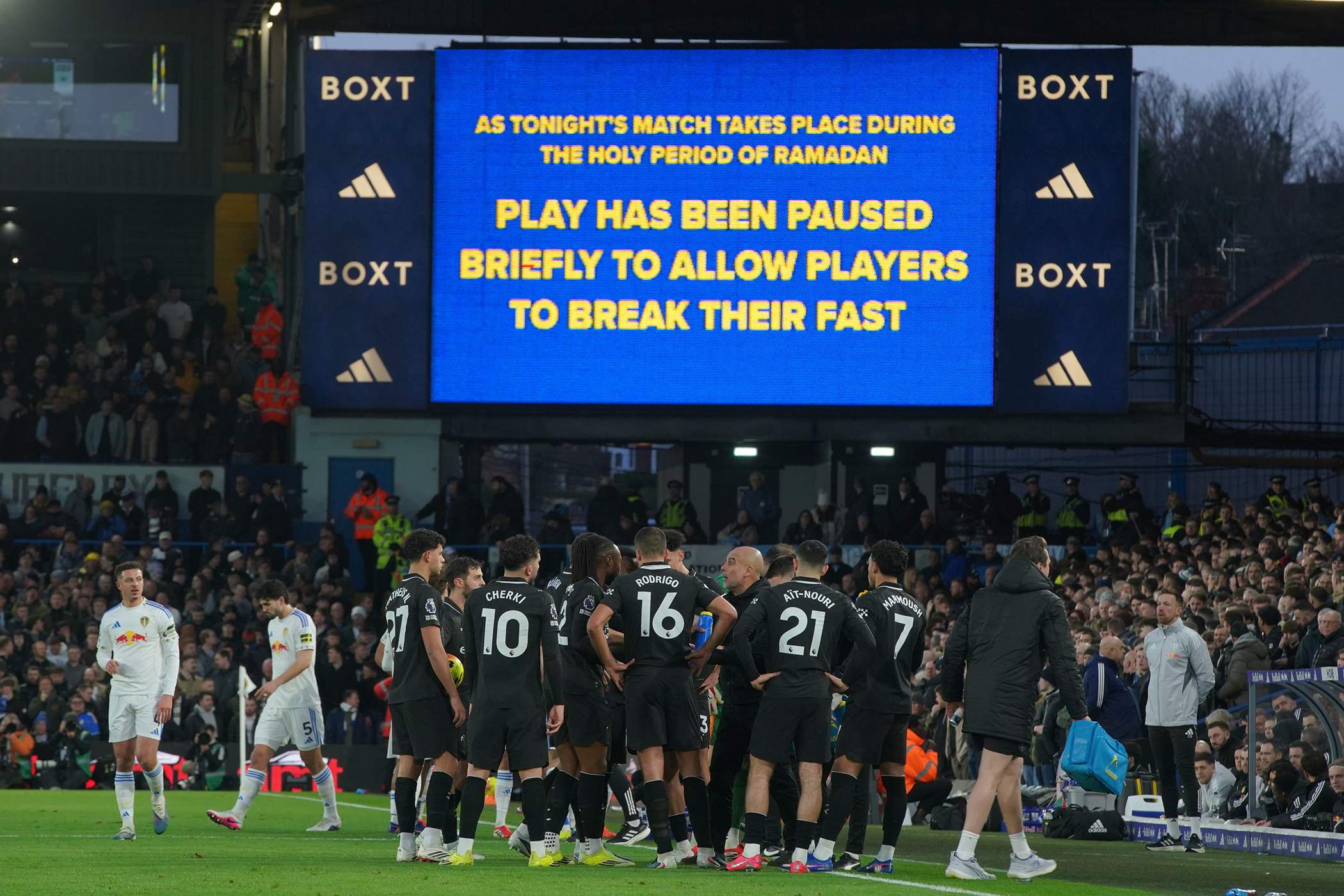Jack Wilshere emerged to Kenilworth Road’s fuzzy adoration, shrouded in navy slacks, a snazzy button-down and hope. This has already been declared his club, his empire, Wilshere’s Luton. Over the tannoy, Phil Lynott heralded the boys’ imminent and joyous return to town. Wilshere would later call it “one of the best moments of my career”. He, and the fans, were less positive about the ensuing two hours.
Five days after his first senior appointment, Wilshere unquestionably has the managerial schtick nailed, pointing and clapping and posing on the touchline, chewing gum like he quit smoking last night. He also understands the value of hitting the expected marks, a gifted reframer and rephraser of football’s finest cliches. Outwork the opposition. Let the lads enjoy their football. No-one’s going to give you three points. This all has its place. The question now is whether he can do the rest of it.
A whispered hype has followed Wilshere since retiring. His 2022-23 FA Youth Cup run with Arsenal’s U18s became an in-house documentary series titled “Back Home”, before he joined Norwich as first team coach in 2024, taking two interim matches at the end of last season. He appears to fit a footballer’s idea of a good orator and leader, which is not meant to be derogatory, rather a genuinely important skill here, naturally engendering respect from players. There is something oddly sincere and worldly about Wilshere the coach, helping him overcome the little-considered but still legitimate managerial obstacle of being very short and slight.
Luton CEO Gary Sweet said that in the past five seasons, four coaches have been promoted from League One in their first managerial roles, suggesting their “fresh energy and approach” was the decisive factor. Hiring coaches depends upon a concerning level of faith at the best of times. For Luton, this is an admirable if somewhat desperate gamble to resuscitate a club meandering back towards irrelevance.
For Wilshere, psychological scarring from his playing career is expected and obvious. This partly explains why he chose Chris Powell as his assistant, a vastly experienced and respected manager in his own right, a consigliere and comfort blanket. Wilshere will never be quite sure whether playing so much football so young triggered everything that came after, but he has been neurotic about not rushing into management, about earning his place as a coach rather than an ex-player.
Few footballers understand the meaninglessness and cruel futility of potential and promise quite this intimately. In February 2013, Dani Alves said of a 21-year-old Wilshere: “Without doubt he can reach the height of the players we have here at Barcelona like Xavi and Iniesta.” He had, in fact, already peaked.
At 33, he is younger than Virgil van Dijk and Luton striker Nahki Wells, who missed a first-half penalty. He has played fewer Premier League matches across his career than Bukayo Saka has at 24. Watching another dream disappear terrifies him. “I spoke to Mikel [Arteta] and asked when he knew he was ready,” Wilshere said at his unveiling. “He laughed and said, ‘You just have to jump in and swim as hard as you can’.”
The Premier League’s transactionality and restlessness are seeping through the English game
The Premier League’s transactionality and restlessness are seeping through the English game
Wilshere’s greatest influence should be Arsène Wenger, but he seems to have taken much more from Arteta and Eddie Howe, the only English coach managing in the Champions League. His Arsenal U18s were supposed to be trained in Arteta’s image and he told FourFourTwo that “Eddie affected me tactically” across two seasons at Bournemouth, calling him “the best coach on the grass, because of the energy and detail he put in”. But short of him setting up in a 4-2-3-1 on Saturday, there was little to discern of any grand philosophy here. He called himself “adaptive” post-match.
He appears to have borrowed Arteta’s love of a motivational gimmick, asking kitman Pete Dye to deliver the team talk ahead of his first interim match at Norwich, and also blasting music around the training ground. “Back Home” showed one pre-match team talk he focussed on unity, particularly the T – “team” – and Y – “yourselves”. It seemed loosely inspiring. They went 2-0 down to Watford within 20 minutes.
Inside Kenilworth Road, it took 18 minutes for one fan to remark “we should have got Richie Wellens”, the other mooted contender. This was one of 11 matches in the next two months. Patience is an expensive risk few are willing to take, and Luton are already much closer to the relegation zone than the playoffs.
Newsletters
Choose the newsletters you want to receive
View more
For information about how The Observer protects your data, read our Privacy Policy
This is a particularly grim and excruciating time to become a manager, attempting to forge stability in a volatile and fragile world. The contrast with Nigel Clough in the away dugout, the second-longest serving manager in the EFL who oversaw his 1,500th match earlier this year, was painfully obvious. Clough learned how to do this in an era which allowed him to learn. The pockets of boos after Luton’s drab and directionless 2-0 defeat were a reminder that the Premier League’s transactionality and restlessness are seeping through the English footballing structure.
This might be the trade-off for hosting the highest-quality league in the world. It facilitates England producing the best players and football, but managers require something different to flourish, time and experience and support, the opportunity to fail and recover at an elite level. A number of Wilshere’s former teammates have already been labelled damaged goods, Steven Gerrard and Wayne Rooney now basically unemployable, Frank Lampard and Scott Parker in varying states of reputational therapy.
“I definitely learned some things from today,” Wilshere said post-match. Arteta is right – at some point you just have to jump in. But the water has never been harder to swim in.
Photograph by Kin Cheung/AP



